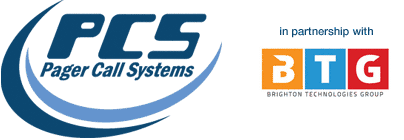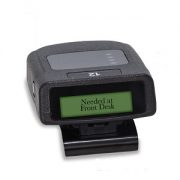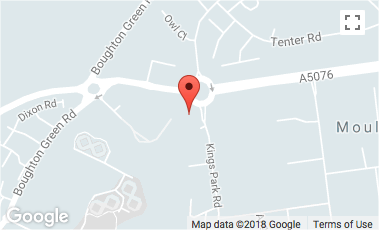The Health Secretary Matt Hancock has said that he wants to stop the NHS using “outdated” pagers by 2021. In theory replacing pagers with WhatsApp style messaging is a good idea, but there are a number of drawbacks to using this technology.
First of all how exactly would replacing pagers with WiFi or network based data devices save money for the NHS? The NHS could not rely on staff using their own smartphones, this means the NHS would have to provide devices to all of their staff, the cost of supplying smartphones to staff would be substantially more than supplying pagers. There is the option of getting staff to use their own smart phones but this would bring in to question the confidentiality and security issues that surround the use of personal devices.
If the figures quoted by Matt Hancock are correct the NHS currently uses around 130,000 pagers at a cost of £6.6m per year, this equates to approximately £51.00 per year for each device. To replace all pagers in use with smart phone devices is likely to cost over £125 million, that is excluding the cost of software for the secure messaging platform and the increased infrastructure cost improving WiFi networks in hospitals to accommodate it.
Using App based messaging would rely on either a mobile phone networks data service or WiFi, many hospitals in the UK have very poor cell phone coverage withing the hospital and even ones that do have numerous black spots where there is no reception.
If the new devices were to use the hospitals WiFi network this would be reliant on not only excellent WiFi coverage but also very robust managed gateways with fast handover to ensure devices maintained connection whilst staff are on the move. Many hospitals just don’t have a good quality network that could support hundreds or potentially thousands of devices with instant handover between gateways.
The final issue is maintaining connection between the device and the WiFi network, even the best quality devices from time to time will lose their connection to WiFi.
Many hospitals have already installed new technology IP based communication systems only to find that the technology isn’t robust or reliable enough for a hospital environment.
Most people would agree that the NHS should be facilitated with the best technology available and correctly funded to instigate it but spending over a billion pounds on a project to replace pagers is unlikely to bring about the degree of improvements in care that would be seen from spending the money elsewhere within the NHS.
If the Department for Health and Social Care has over a billion in spare cash then ask the NHS where they would like that money allocated, I think there would be a long list of priorities above replacing pagers and fax machines.
At Pager Call Systems we supply both traditional paging systems along with network and WiFi based technology, in our experience pagers are still favoured by many hospitals due to there simplicity and reliability.
The questions that need to be answered before kicking the NHS pager in to touch are:
- Will the new technology to replace pagers cost the NHS more?
- Who is going to pay, the NHS Trust or the Department for Health and Social Care?
- Is the technology reliable enough?
- What benefits will the new technology bring?
Ultimately it will be down to cost and benefits and with a cash strapped NHS that is fast losing funding it is unlikely that the new technology will be affordable.
Unfortunately as has been shown many times in the past when government intervenes in things without first understanding the facts we can end up with a very expensive white elephant, lets hope this isn’t the case this time.






